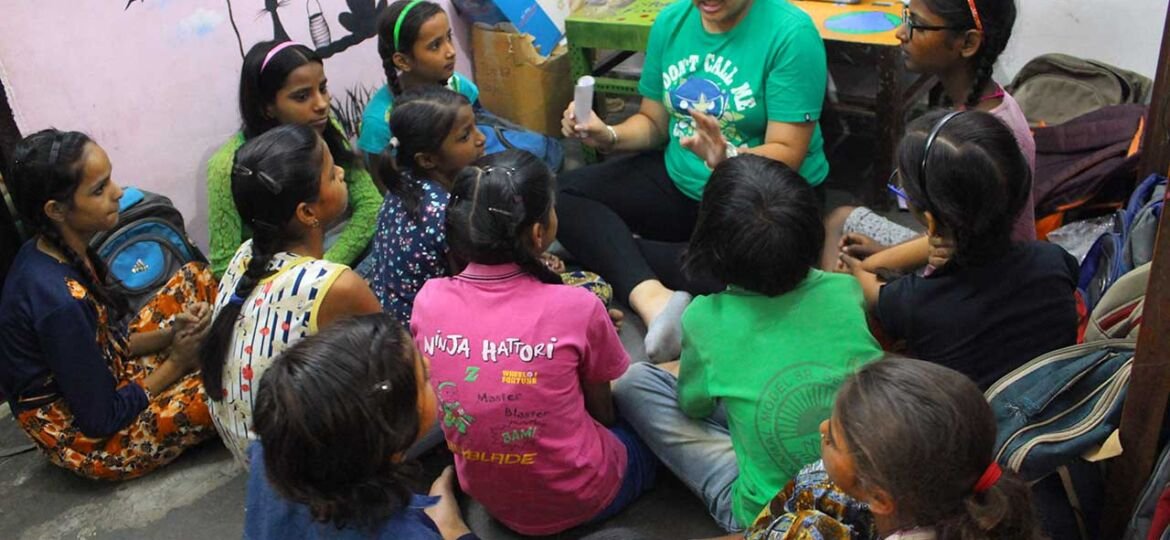
Though there are many communities in which menarche, i.e. the first time a girl menstruates, is marked as an occasion of celebration, the hypocrisy is that at the same time the girls are not allowed to enter the temples, or kitchens as they are considered ‘dirty’. I am 15-years-old and I already find it outrageous how several people are invited to celebrate and form opinions on such a day of a young woman’s life that does not even concern them! There are many taboos and myths about Menstrual Hygiene and it is necessary to remove these from the minds of people. For this, awareness about Menstrual Hygiene is important. Protsahan sets out to achieve this through a combination of innovative art based communication tools, counseling and brewing conversations right where it matters in the communities with young girls.
To provide awareness about periods to little girls, in the week preceding Menstrual Hygiene Day, the girls at Protsahan India Foundation played several board games which were specially designed by IIT Delhi under ‘Project Titli’ (Project Butterfly) that includes a roulette of myths and facts, cue cards about practices for maintaining menstrual hygiene and puzzles on how a girl should handle her first period.
Following is a brief account of a conversation about menstrual taboos with the girls at Protsahan after they played the games:
What are the myths you have faced about menstruation?
“We are not allowed to touch pickles, or touch fruits and vegetables which are to be pickled, while we are menstruating or the pickles will go bad. Also, we are not allowed to enter or worship in temples during this time. My mom tells me not to wash my hair during this time of the month.”
How do you feel about such myths?
“I believe menstruation is a totally natural process and making it a social taboo is not something that’s desirable. We should be able to talk to all other women about menstruation but talking to men about such issues should be avoided”
Do you feel scared about getting your first period?
“I do not feel scared at all. My friends and teachers at Protsahan have taught me so much about menstruation through various activities and workshops that I feel absolutely confident and ready for that day!” During this conversation, an elder girl from senior secondary school batch, quipped in to say, something that took me by pleasant surprise! She said she felt powerful during her period!
“माहवारी के दौरान मैं शक्तिशाली महसूस करती हूँ।”
Getting ready for a world of pain
In India, and some other countries of the world, it is considered the duty of the girl to endure pain! People often think that the sole purpose of the existence of a woman is to give birth to a child and nurture it only. During my literature review for secondary research for this article I came about one such account on how young girls are being taught to resist this pain so that they can become ‘good mothers’ in future!
There was a woman who got married at the age of 25. She gave birth to a girl about a year later. After her daughter was around 16 days old, she saw her mother-in-law slapping the new-born vigorously. When the lady was asked why she was slapping the little girl, she said nonchalantly that she was teaching her to withstand the pain so that she is able to manage when her husband will hit her!
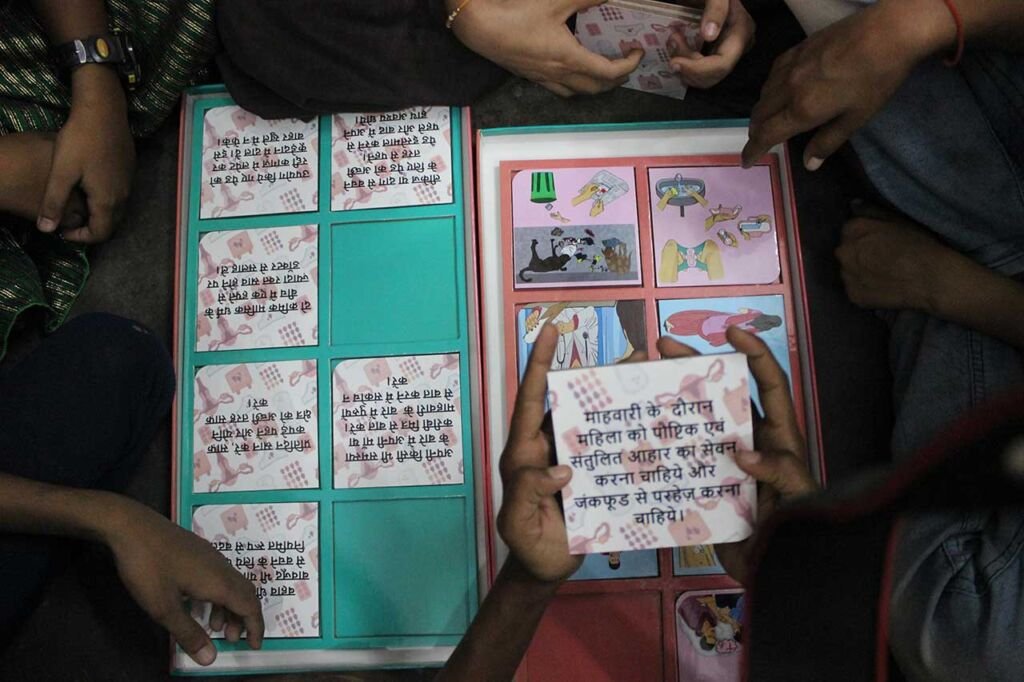 Involving parents & educators in menstrual hygiene conversations
Involving parents & educators in menstrual hygiene conversations
One of the major problems in India is the lack of awareness about menstruation among teenage girls. Teachers and parents are often reluctant since they consider it as a sexual concept which should not be talked about with a child. A Reuters study for Menstrual Hygiene Day reported that 1 out of 3 school girls across South Asia was not aware of periods before experiencing one for the first time, and only 2.5% of the same group knew that menstrual blood came from the uterus. Following is a true story about the lack of awareness in a government school, that Protsahan social workers came across.
A male Math teacher at a Government school asked a student to get a duster to clean the blackboard. The student ended up bringing a sanitary pad and the teacher ignorantly cleaned the blackboard with it. When the teacher was asked about what he was doing, he was clueless about why the government sent a truckload of ‘dusters’ to the school!
Girls tend to miss school six days a month on an average due to the inability to manage their periods at school. A study by DownToEarth showed that his eventually contributes to almost 23 per cent girls dropping out of school on reaching puberty, which critically undermines their potential as individuals and future workers. This is why it is necessary for schools to have better facilities so girls can study as efficiently as boys.
For girls from under-served communities, this situation is even worse since they do not have access to proper sanitation facilities. Handling menstruation unhygienically can lead to many health problems like infections, fertility issues etc.
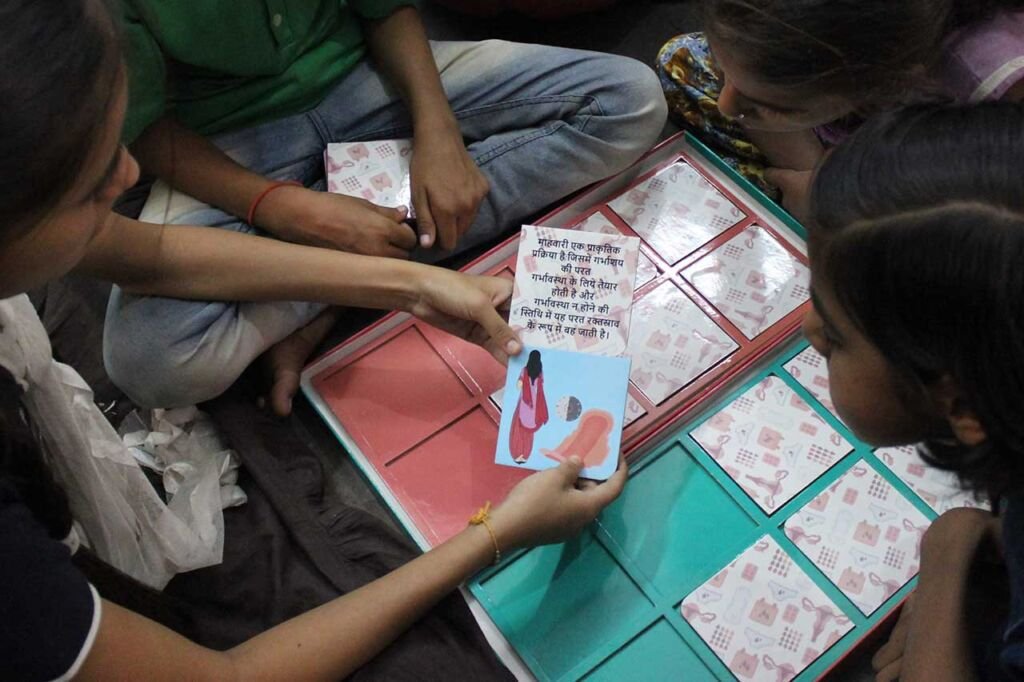 Kerala: A dichotomy of thoughts & actions
Kerala: A dichotomy of thoughts & actions
Kerala has become the first Indian state to make sanitary napkin vending machines mandatory in all schools. This has been a huge step and will be very beneficial for the adolescent girls since it will help them get an education at school, without any social obstacles around menstruation. At the same time, the restriction of entry for women at Sabarimala temple in Kerala is contrary to this move. Sabarimala Temple is a Hindu temple dedicated to Ayyappan situated at Sabarimala in Kerala, India. In the past, women devotees of menstruating age were not permitted worship here, this ban being said to be out of respect to the celibate nature of the deity in this temple. There has been an instance where a woman tried entering it forcibly and the very next day, the entry of common people to the temple was closed since the temple had to be ‘detoxified’. Fortunately, the Kerala High Court removed this ban on the account that gender inequality, even on religious terms, is highly unconstitutional.
Another state government that has worked on improving menstruation facilities is the Andhra Pradesh State Government. “The government has decided to provide sanitary napkins free of cost to school girls and at a concession to women from lower socio-economic backgrounds in order to encourage young girls to attend school during the time of menstruation as well as to maintain a healthy reproductive system among older women.” – said Andhra Pradesh Chief Secretary Chandra Punetha.
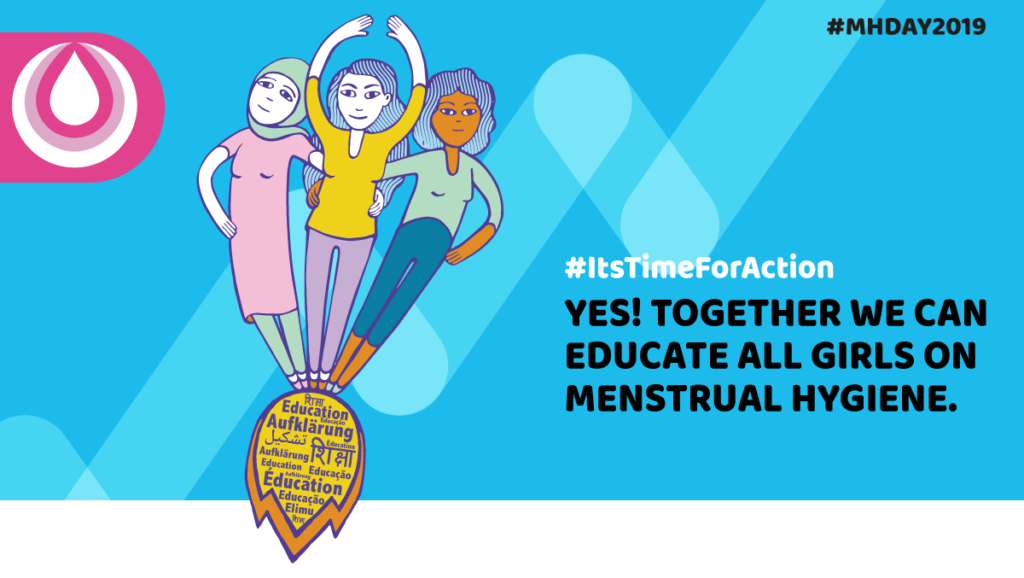 Concluding thoughts
Concluding thoughts
The most effective way of abolishing menstruation as a taboo and normalizing it, like the process of breathing, is by spreading awareness among the current generation. What better way than to use art and innovative games and compassionate counseling as a means to achieve it, like Protsahan so powerfully does. The girls of today are going to be the future work-force so it is crucial to give importance to their development from today itself. From the very beginning, adolescents, both boys and girls, should be taught about the menstrual cycle scientifically so that they do not perceive it as something that is not to be talked about.
The social censoring of the term menstruation needs to come to an end so everyone is able to talk about it without hesitation. The silence perpetuates a culture of silence and dissuades adolescent girls and women from seeking medical help while they encounter problems linked to menstruation. Let us take a step towards empowerment so that no woman, whether menstruating or not, feels alienated. This World Menstrual Hygiene Day, let us all talk about periods and eliminate the hypocrisy surrounding it.


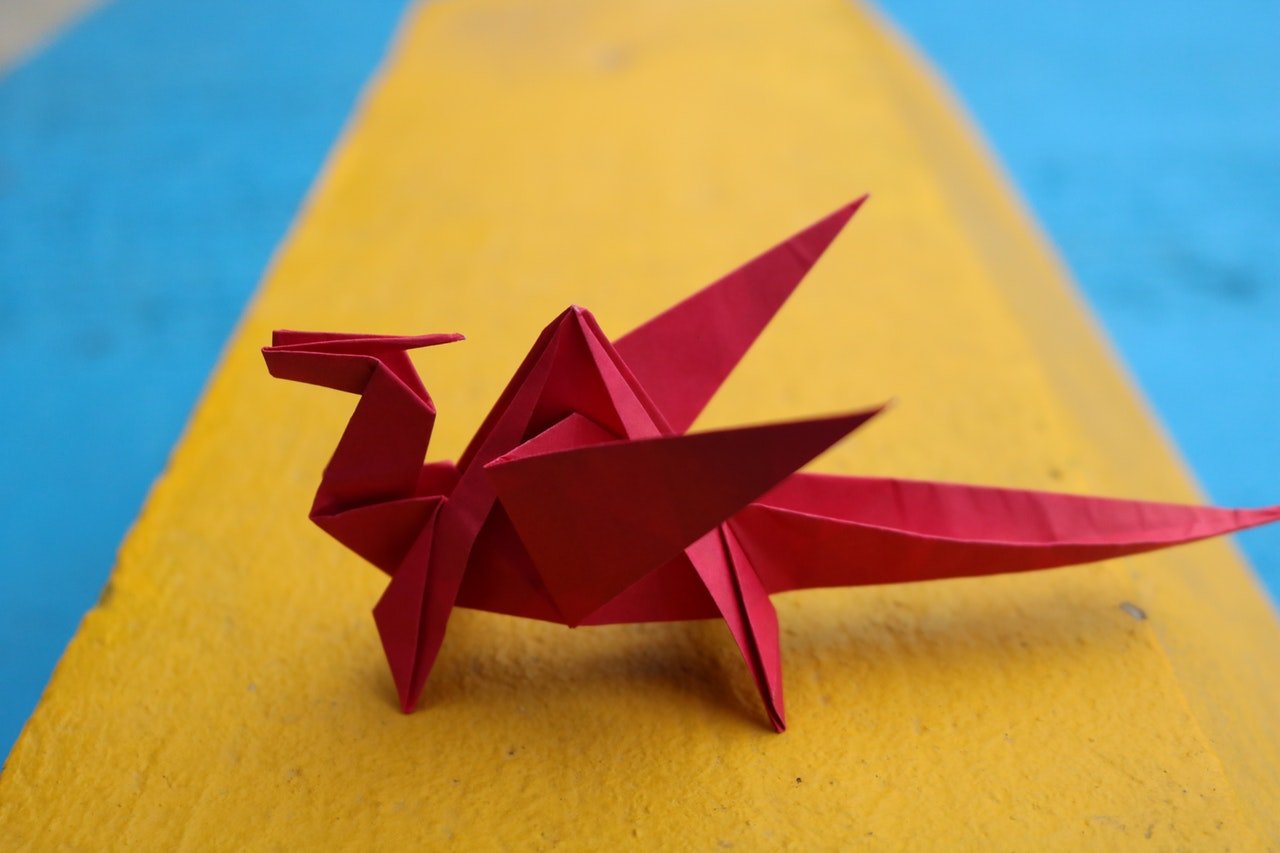
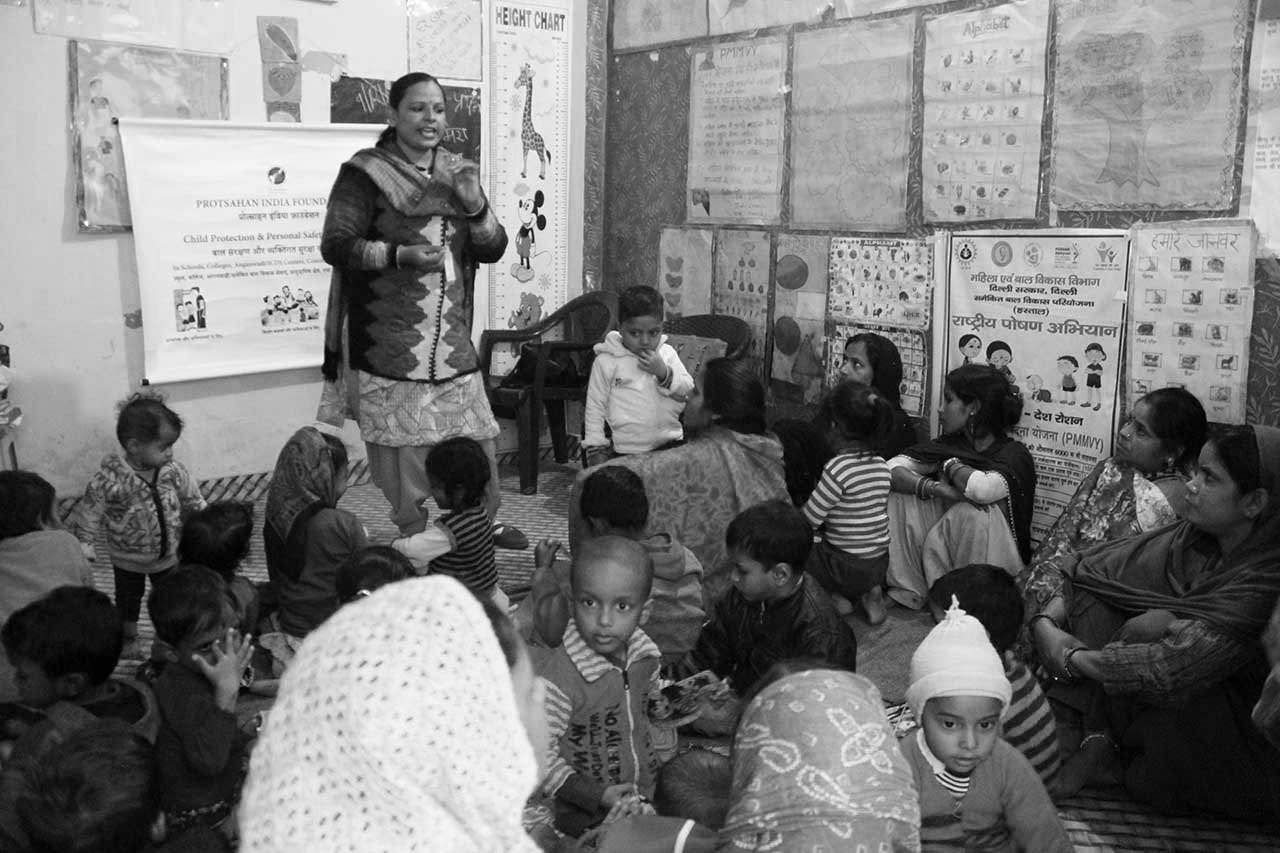


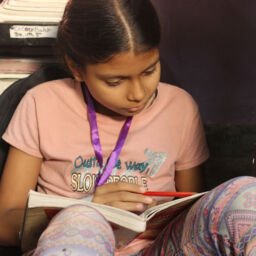

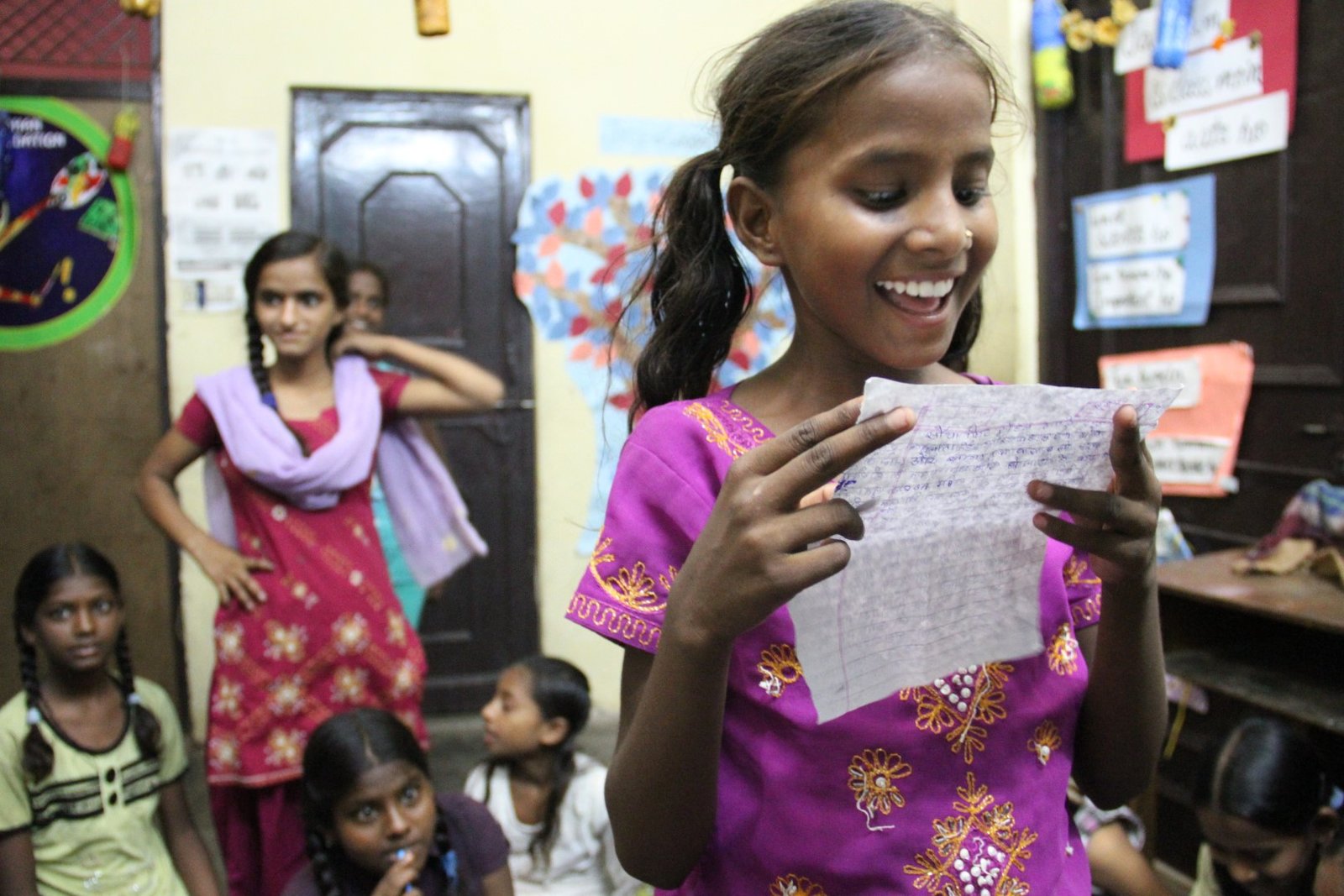

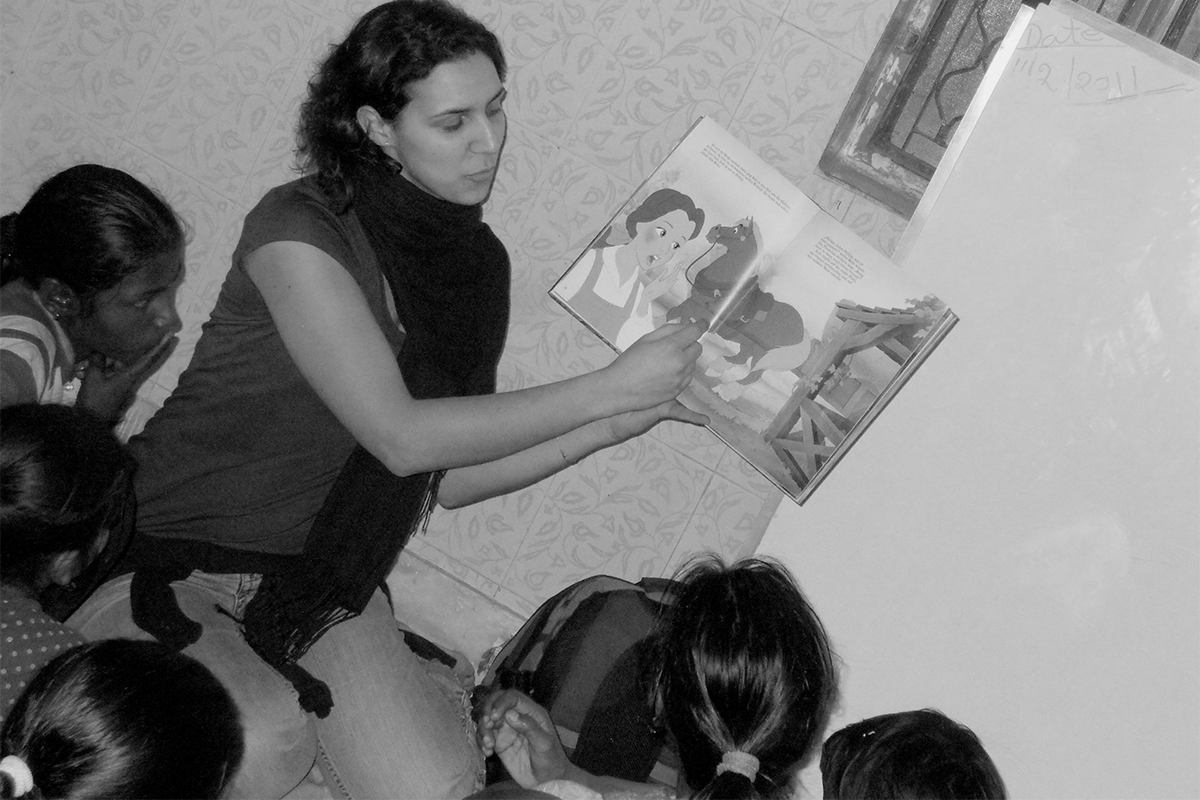
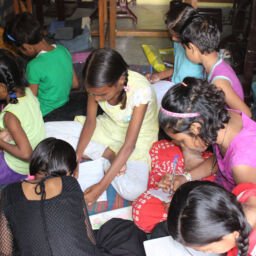


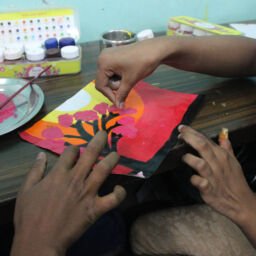


This is brilliant!!!!